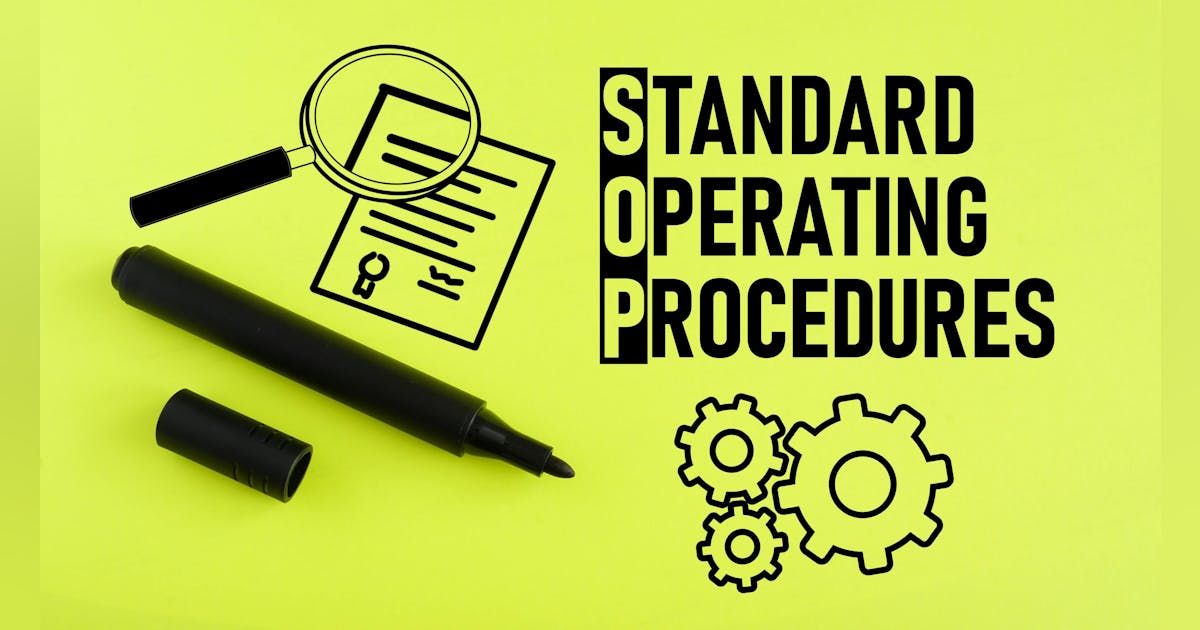However, even though many companies know SOPs are essential, they often struggle on where to start and how to use them well. One big mistake is not involving your employees who do the work. Managers may know the processes, but those who do the work have the best insights. Involving them gives you two significant benefits:
1. Uncovering the Real Problems: When your employees share their thoughts, real issues and slowdowns become clear. Instead of guessing, this team approach helps find the real reasons for problems in sales, service, installation, and more. Your front-line employees know best where things go wrong and how to fix them.
2. Boosting Employee Engagement: Listening to your employees and using their feedback makes them feel valued and part of the company’s success. Feeling valued makes them more motivated and productive. Based on recent employee satisfaction polls by Gallup, it’s estimated that engaged employees are up to 21% more profitable than those who are not engaged. When your employees see their opinions matter, they take more pride in their work and help the company reach its goals.
Here are some effective strategies to consider that may help you engage your employees in the SOP development process and leverage their valuable insights:
1. Build Cross-Functional Teams: Bring together a team from different parts of the company. Include people from various departments and with different skills. This way, you get diverse viewpoints. This helps to see how processes connect and where improvements are needed.
2. Conduct Interviews and Meetings: Talk directly to employees, do one-on-one interviews, and conduct group meetings. Ask your employees about their work. This helps you determine what is working well and what is not. You also get detailed feedback and ideas for solutions.
3. Encourage Frontline Observations: Let employees watch and note how things are done. They can see where the process slows down or has issues. This firsthand insight is priceless. Employees on the ground can give practical advice that you never considered on what works and what doesn’t.
4. Ask for Feedback and Suggestions: Create easy ways for employees to share their ideas. Use online forms or other channels, such as a feedback box. This shows you value employee input. Regular feedback can help keep improving your processes.
5. Pilot Test and Iterate: First, test new or changed SOPs with employees. People don’t like change, so start slow. Gather their feedback and make changes based on what they say. This way, you ensure the SOPs are effective and practical before fully rolling them out.
6. Provide Transparency and Communication: Keep your employees informed about the SOP process. Share the reasons for changes, goals, and progress. This openness helps employees feel involved and more likely to support the new procedures. Knowing why changes are made makes them more likely to get on board.
7. Acknowledge and Reward Contributions: Recognize and reward employees who help in the SOP process. This can be through formal programs or informal thanks. When employees see their contributions are noticed, they feel more motivated to keep helping the company improve.
8. Establish a Culture of Continuous Improvement: Encourage your employees to continually look for ways to improve. This means they should feel free to suggest changes to the SOPs over time. By doing this, you create a system that keeps getting better.
Using these strategies, you can create a better team environment in your company. This taps into your employees’ skills and knowledge, leading to better, more efficient SOPs.
Common Mistakes in SOP Implementation
Here are some common mistakes companies make when creating SOPs without using employee insights:
1. Top-down Approach: Many companies let managers create SOPs without asking employees for input. This can make the procedures unrealistic because they don’t reflect daily work. They are disconnected from what really happens in the field.
2. Lack of Transparency: Not explaining why SOPs are essential can lead to confusion. Employees might see the SOPs as more paperwork than tools to improve their jobs. If your employees hear, “more work,” you can expect pushback.
3. Ignoring Frontline Expertise: Frontline workers often know best where problems exist. Ignoring their input can lead to SOPs that don’t solve real issues and defeat your goals.
4. Insufficient Feedback: Some companies don’t have ways for employees to give feedback. No feedback stops SOPs from being updated and improved over time.
5. Lack of Continuous Improvement: Some companies don’t update their SOPs regularly once created, making the procedures outdated and unusable.
6. Resistance to Change: Employees might resist new SOPs, even if they are better. Companies need to manage this resistance to ensure the changes work. Help your team understand why you’re doing what you’re doing.
7. Insufficient Training and Support: Employees may not use the SOPs correctly without proper training and must understand why they are essential.
By avoiding these mistakes and involving employees in the process, companies can create SOPs that work well. This leads to better efficiency, quality, and employee support.
Don’t let your SOP project fail because of these common mistakes. Use employee engagement to unlock the full potential of your processes. This will help your company run smoothly and more efficiently.
Whether you require installation, repair, or maintenance, our technicians will assist you with top-quality service at any time of the day or night. Take comfort in knowing your indoor air quality is the best it can be with MOE heating & cooling services Ontario's solution for heating, air conditioning, and ventilation that’s cooler than the rest.
Contact us to schedule a visit. Our qualified team of technicians, are always ready to help you and guide you for heating and cooling issues. Weather you want to replace an old furnace or install a brand new air conditioner, we are here to help you. Our main office is at Kitchener but we can service most of Ontario's cities
Source link




Add Comment